01:25
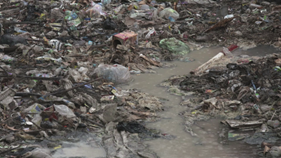
That piece of plastic wrap or Styrofoam box you chucked is not going away; it will simply break down into small pieces.
But researchers are now finding that plastic can disintegrate into pieces so small they can be inhaled.
People in the UK capital London are breathing in a billion microplastic particles every year, according to researchers from King's College London.
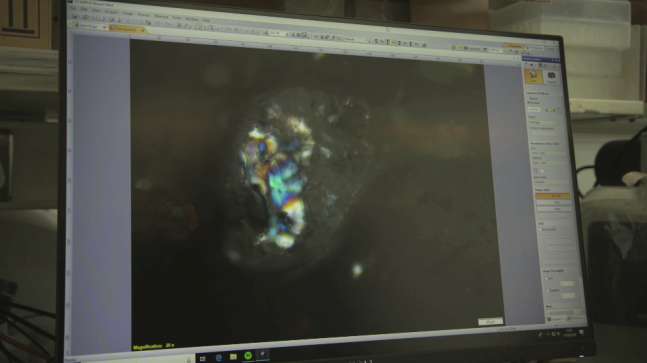
Polystyrene, a kind of plastic used in Styrofoam, has been found in an air sample. /CGTN Photo
Polystyrene, a kind of plastic used in Styrofoam, has been found in an air sample. /CGTN Photo
"Plastics are in fact in the air," says Joseph Levermore, a King's College researcher, "They go right down into the inhalable size range, so that's below 2.5 microns in size or in diameter, and they can be inhaled into our lungs."
2.5 microns in size: That's four percent the thickness of a strand of human hair. There's no escape; Levermore says he also found these microscopic particles indoors.
But you aren't just breathing plastic. You are digesting it too.
Stool samples from eight individuals from eight different countries were collected in a 2018 pilot study by Germany's Federal Environment Agency and the Medical University of Vienna. The findings – the first of their kind in the world – were startling: all samples contained microplastics.
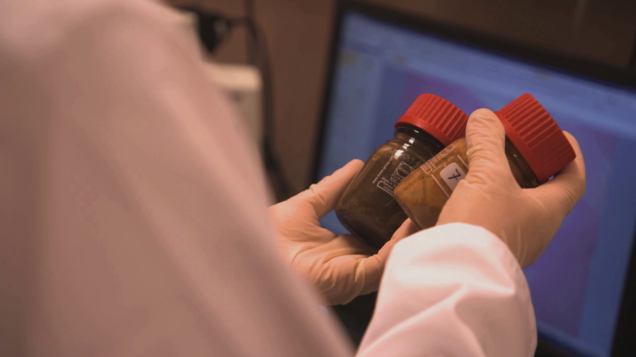
Stool samples collected by researchers. /CGTN Photo
Stool samples collected by researchers. /CGTN Photo
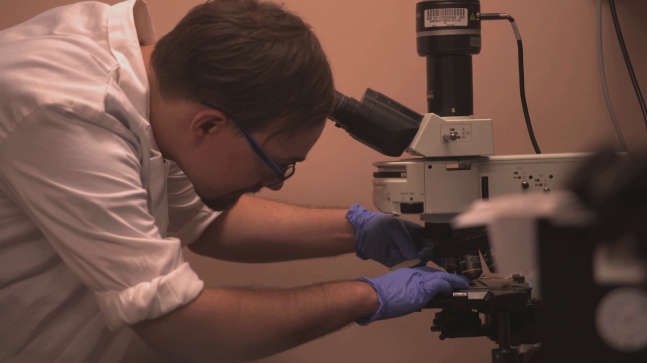
Dr Philipp Schwabl is a gastroenterologist, a specialist in the human gut. /CGTN Photo
Dr Philipp Schwabl is a gastroenterologist, a specialist in the human gut. /CGTN Photo
When asked about what eating plastic is doing to us, Dr Philipp Schwabl, one of the researchers, said that he "cannot really tell… at the current state of knowledge," as more research is needed in this area.
Still, it's a worrying fact. The obvious solution is to use less plastic. But, sources of microplastic are more prevalent than you think. Professor Frank Kelly from King's College London says that microplastics can come from many sources, "from everyday furniture" to "fibers in carpets," and perhaps more surprisingly – from car tires.
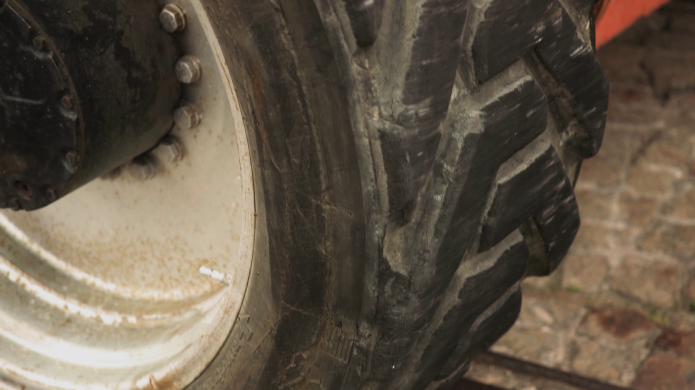
Car tires could account for an estimated 10-28 percent of microplastic waste in our oceans. /CGTN Photo
Car tires could account for an estimated 10-28 percent of microplastic waste in our oceans. /CGTN Photo
Today, almost a quarter of every car tire is made of synthetic rubber, a plastic polymer. Every time we drive – tiny bits of tire gets left behind on the road. While one car might not shed much, hundreds of thousands of vehicles on the road, braking and accelerating, can make a big contribution.
For example, around 100,000 tons of rubber is scuffed from car tires in Germany every year, according to researchers from the Berlin Institute of Technology. That's enough material to make 17 million new car tires.
These tiny plastic polymers do not remain on the road. When it rains, they get washed off into the soil, drains, rivers, reservoirs and oceans. Some research estimates that tires could account for 10-28 percent of microplastic waste in our oceans.
Daniel Venghaus from the Berlin Institute of Technology is part of a team that is coming up with a solution for that. Right now, they are working on sieves for drains that will capture bits of worn-off tire when it rains.
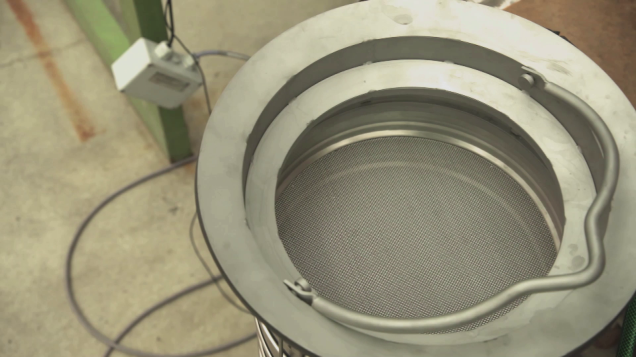
Sieve could catch and filter out tire particles when it rains. /CGTN Photo
Sieve could catch and filter out tire particles when it rains. /CGTN Photo
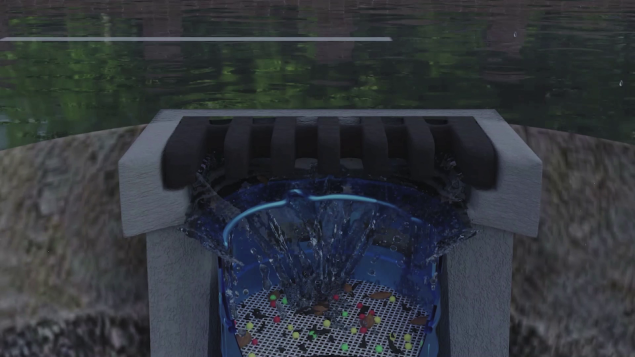
How a sieve could filter tire particles and prevent them from reaching oceans. /CGTN Photo
How a sieve could filter tire particles and prevent them from reaching oceans. /CGTN Photo
Wi-Fi sensors could send back information about what has collected and when the drains need to be cleaned.
However, the device is still on trial, and the sieves can only filter out microplastic particles as small as six microns. Smaller microplastics will still get washed into our waters and soil. In addition, it will be difficult to invent car tires that are completely plastic-free.
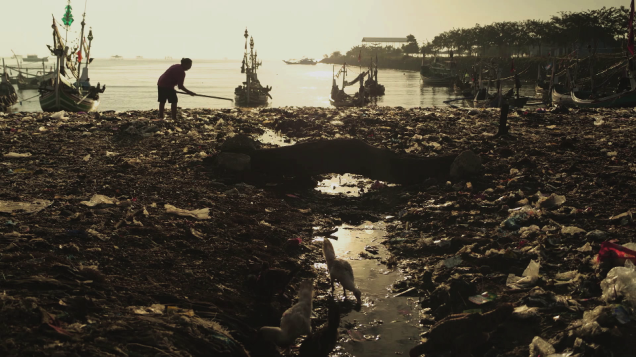
Whether you live near this polluted beach, or in a clean city, there's no escape from eating, breathing and drinking microplastics. /CGTN Photo
Whether you live near this polluted beach, or in a clean city, there's no escape from eating, breathing and drinking microplastics. /CGTN Photo
The hard truth is that there is little we can do to reduce the microplastics that have leached into our air, food, and water. We have used plastic with abandon, and now we have to contend with surviving in the plastic world we have created.
(Report by Tony Cheng)
Assignment Asia is CGTN's award-winning current affairs program featuring long-form stories and documentaries on some of the most pressing issues in the region. The show airs Saturdays at 1330 and 2130 GMT, with replays every Sunday at 0630, Monday at 0130, and Tuesday at 0530.